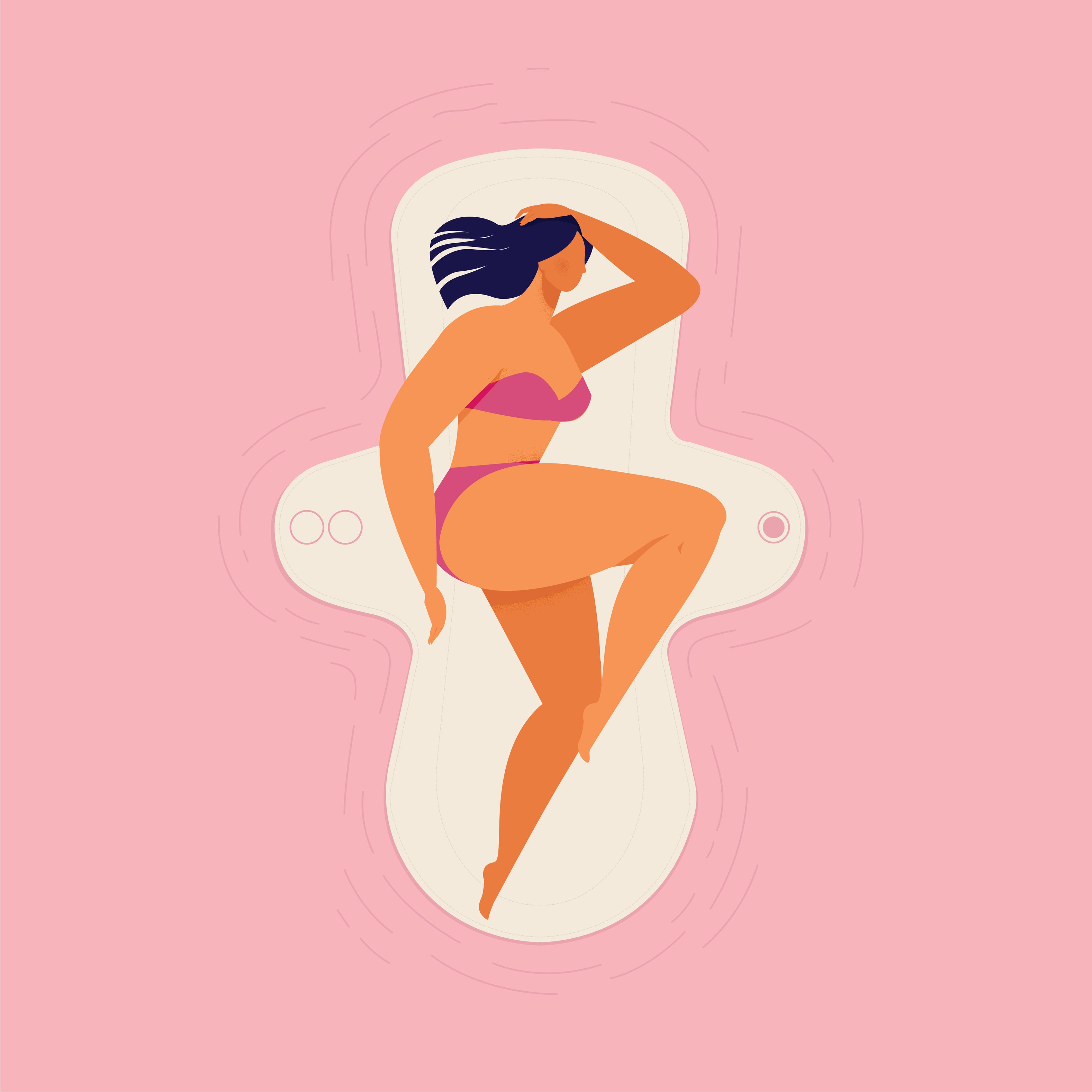Can CBD tampons cure my period pains?
As CBD is increasingly being used as an analgesic, Molly Codyre finds out how it holds up against period pain


At the age of 17, I went on the pill. Partly because I knew that I was heading off to university, and that by all odds I was likely to do the deed soon enough, but predominantly because it was recommended to help with my period cramps. After endless stints in the school nurse’s office, and one particularly bad day when I almost blacked out walking from bathroom to bedroom, it became apparent that my period pain wasn’t ‘normal’. The word endometriosis was chucked around, though no diagnosis was ever made. But the pill helped dull the pain and made having a uterus bearable.
A study published in the British Medical Journal showed that 20 per cent of women under 25 had missed school or work due to period pain, and a further 40 per cent had found that it severely affected their ability to concentrate. While there are no statistics showing how many women go on the pill specifically to ease menstrual pain, it is widely touted as a beneficial side effect of hormonal contraception. A 2017 article even analysed how each different form of contraception ranked in the pain relief stakes.
But what if there was another option – one that didn’t involve hormone-altering medication and the various downsides that come along with it? CBD has been having a moment in healthcare recently, with discussions around its possible benefits, including pain relief, anxiety relief, and the management of cancer side effects, including nausea. Studies around this are still in their early stages, but, while the positive effects are yet to be confirmed, what has been published so far looks promising.
Cannabidiol (also known as CBD) is a non-psychoactive chemical compound found in marijuana. A study published in the Baylor University Medical Centre Proceedings journal discusses the anti-inflammatory and antioxidant properties of CBD, and states: “We are just beginning to understand the impact of phytocannabinoids and their clinical applications. It is important for healthcare providers to be aware of CBD use in their patient population.”

Researchers are beginning to draw a connection between CBD’s pain-relieving properties and its potential for treating period cramps. Dr Leila Frodsham, consultant gynaecologist and spokesperson for the Royal College of Obstetricians and Gynaecologists, says that there is “some evidence to support its use in intractable pain conditions and managing anxiety to good effect. There is less evidence to support [its effectiveness against] menstrual symptoms but, as efficacy is deemed to be similar to ibuprofen, it may well help with both menstrual cramps and the labile mood of premenstrual syndrome.”
While there remains scant research around the oil’s benefits when it comes to period pain, there are a few products directly harnessing it for targeted purposes.
Daye is one such company. Founded in March 2020, the business specialises in CBD-infused tampons that claim to reduce period pain in a hyper-targeted manner. The idea for the product “came from reading research papers on industrial hemp – the mother plant of CBD”. Valentina Milanova, founder of Daye, tells The Independent: “Through research, I realised the fibres of the plant are hyper-absorbent, and the extract from its flower can be pain-relieving.” But the brand doesn’t refer to their products as pain-relieving, for regulatory reasons.
I figured I’d put the products to the test. I waited until I felt the telltale signs of brewing pain – aching back, dully throbbing stomach, a general tightening around my torso – to try out the tampons. What happened can be most accurately described as nothing. I felt nothing. The pain never eventuated, and I had the first pain-free period in as long as I can remember. I wondered if maybe it was a fluke – one swallow does not make a summer, and all that jazz. But a second month’s visit from Auntie Flow provided the same results – nada. No pain. Zilch. Zero.
Dr Frodsham touches on the lack of research around CBD oil in general, and its relation to period symptoms specifically, but says: “It seems that orally ingested CBD may be slower to work and less effective than topical application. Any drugs taken orally go through the liver to be metabolised, so much active drug is lost in this process.” She continues: “Gynaecologists often use suppository pain relief for gynae procedures as the blood supply in the pelvis is rich, and so, theoretically, this may be more effective.” In further correspondence she tells me that after our conversation she did some further research into CBD, specifically in regards to its efficacy when it comes to period pain and women’s health, and came across a study that is currently being undertaken on the very topic, the results of which she is anxiously anticipating.
Research into women’s health is desperately underfunded. On average, it takes a woman in the UK seven to eight years to be diagnosed with endometriosis – with around 40 per cent of women needing at least ten visits to the GP before they’re diagnosed. It is believed that 1 in 10 women suffer from endometriosis. So, to have an entire study dedicated to the efficacy of CBD for menstrual pain is potentially groundbreaking. It remains to be seen what the results will be, but based on my personal experience and the expertise of Dr Frodsham, it seems CBD could well be a huge step towards an effective pain solution for period pain, especially when used topically in products such as tampons.
Join our commenting forum
Join thought-provoking conversations, follow other Independent readers and see their replies
Comments
Bookmark popover
Removed from bookmarks